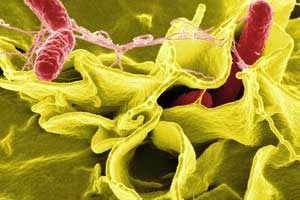Salmonella needs poultry industry’s constant attention

Salmonella Enteritidis is a major problem in the egg industry worldwide due to the public health significance of the vertically transmitted pathogen. Studies conducted in Columbia in conjunction with the South East Poultry Research Laboratory demonstrated concurrent infection with Salmonella Enteritidis and Salmonella Gallinarum.
Twenty-five percent of the 140 samples from commercial farms yielded Salmonella. Approximately 71% of the liver and spleen pools yielded Group D Salmonella. It is considered significant that only 3% of drag swabs yielded Salmonella. The relative insensitivity of this sampling technique has been noted in the US under field conditions.
Experiments conducted at the University of Arkansas demonstrated that tracheal swabs can be used to determine the presence of Salmonella infection. There is growing epidemiologic evidence that Salmonella is airborne under commercial conditions and that dust is an important vehicle for intraflock dissemination of infection.
A functional immune system is essential to suppress Salmonella infection. An experiment conducted at Texas A&M University confirmed that chicks vaccinated at day-of-hatch with Marek’s disease vaccine administered by the subcutaneous route were more refractory to Salmonella infection and subsequent colonization of the intestine than non-vaccinated controls.
The trials also demonstrated that subcutaneous vaccination with Marek’s vaccine by the subcutaneous route in replacement pullet chicks was more effective in preventing Salmonella Typhimurium than administration by the in ovo route.
Studies conducted in Jordan demonstrated that pt4 Salmonella Enteritidis serotypes predominated among field isolates derived from eggs and poultry meat. The characterisation of isolates applying pulse field electrophoresis confirmed a close association between isolates obtained from poultry and from human patients. It was considered significant that many of the isolates were resistant to fluoroquinolines as compared to isolates identified in the EU. This was attributed to extensive and injudicious administration of enrofloxacin and other quinolone antibiotics to flocks in Jordan. This has profound implications for both flock health and for consumers in nations where quinolone use is not regulated.












